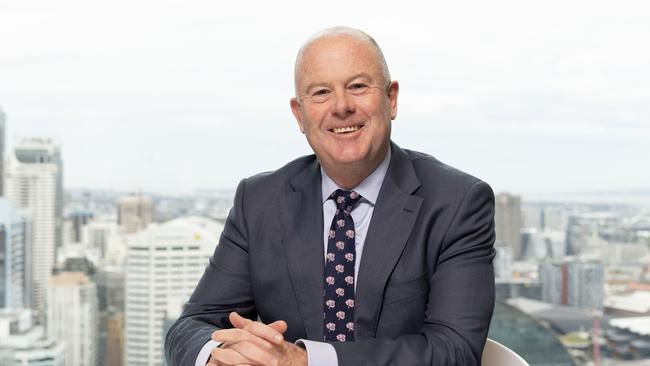Risk of cyber incidents keeping Australian executives up at night, KPMG says
Business leaders are eager to avoid their own Optus incident with tackling cyber threats the main issue for 2024.
Business
Don't miss out on the headlines from Business. Followed categories will be added to My News.
Cyber threats are more likely to keep Australia’s business leaders up at night than any other factor as record levels of immigration ease fears about finding workers.
The “Keeping us up at Night” survey of 319 senior executives at private businesses by professional services firm KPMG Australia revealed leaders are also concerned about regulation and cost control issues as they look to combat a high inflationary environment.
Cyber threats were the main concern for 43 per cent of executives this year after a string of incidents in 2023 rocked the corporate world including hackings impacting DP World andLatitude Financial, along with the recent outage at Optus.
And in the past month, the administrator of Victoria’s judicial system, Court Services Victoria disclosed a cyber security incident that occurred on December 21, while cyber criminals hacked into one of Australia’s biggest health networks, St Vincent’s, in recent weeks.
“High-profile attacks and outages over the last 12 months have clearly reinforced the importance of cyber in executive minds and boardrooms,” KPMG chief executive Andrew Yates said.
“It’s a heightened concern, not only the continuing increasing threat and always needing to evolve your own risk management, but also an awareness of the impact of issues when they occur.”

The result mirrors the findings of The Australian’s 2024 CEO survey published last month which found that cyber attacks are the single biggest external threat to running a business according to the country’s top corporate leaders.
Cyber risks were only the fourth top priority in 2023 but recent high-profile cyber attacks and outages affecting large numbers of people and businesses have seen the issue shift up the business agenda.
KPMG observed given most executives do not come from a technology or cyber background there may also be a ‘fear of the unknown’ compared with challenges which in their comfort zone.
“(Cyber) has elevated itself in boardrooms and executive rooms around the country,” Mr Yates said.
“Every company is investing an incredible lot in cyber. I think the more that business and government can work together on this, the better.”
The report found that business leaders were less concerned by last year’s top issues of finding talent, with just 42 per cent citing it as an issue, compared to 77 per cent in 2023 and 69 per cent in 2022.
KPMG highlighted that the arrival of 500,000 immigrants into Australia in the past year had helped to take some of the heat out of the issue.
Mr Yates said the reduced concern of talent was consistent with how he saw things in his role as the boss at KPMG.
“We probably underestimated exactly how much that the exuberance was post-Covid, with the amount of opportunity that was around. I think business felt that it could transform itself quickly,” he said.
“A year ago it was all about just trying to get people, as there was a real sense of shortage of people that feels like it’s dissipated now and the challenge is more about continuing to retain and attract high quality people.”
KPMG chief economist Brendan Rynne said that at the height of labour shortages in late 2022 into 2023, businesses were forced to hire staff who may not have had all the skills required — an issue not as prevalent in 2024.
“With the added migration and also domestic workers also starting to look around a little bit more, businesses are now having a deeper pool of people to employ,” he said.
“So the skill sets becoming more important differentiator than simply the number of people applying for work.”
The third most important issue for the next 12 months, on 41 per cent, was dealing with regulations, while cost controls in an inflationary environment came joint fourth on 38 per cent.
By contrast, over the next three to five years, emerging technologies such as AI, machine learning and quantum computing was the third highest priority.
Identifying and growing future market segments and/or innovation opportunities for growth fell from second in last year’s priorities to seventh.
“(Executives) are not currently focused on growth, innovation or seeking out new markets,” Dr Rynne said.
“But as things pick up towards the end of the year, this will change and their mindset will turn more towards growth and looking to take the opportunities presented by new technologies like AI.”
Only 15 per cent of executives listed hybrid working as a major concern — ranking thirteenth — compared to eighth last year and third place in 2022. Just 5 per cent of those surveyed cited it as issue in the next three to five years.
Hybrid work has become entrenched in many white collar roles across the country since the pandemic forced remote working four years ago, but in recent times there has been a push at forcing more employees back into the cities and the workplace.
Last year saw NAB boss Ross McEwan order his senior leaders to return to the office five days a week, while Mineral Resources chief executive Chris Ellison has shut down working from home completely.
Originally published as Risk of cyber incidents keeping Australian executives up at night, KPMG says



